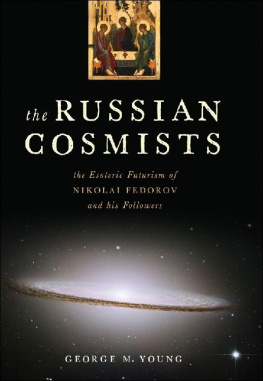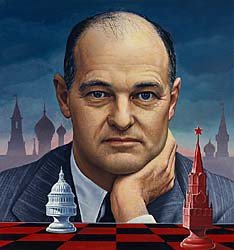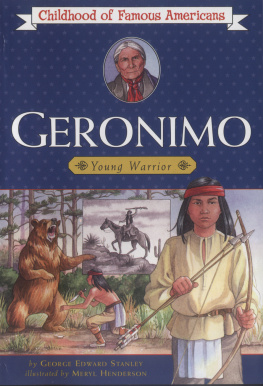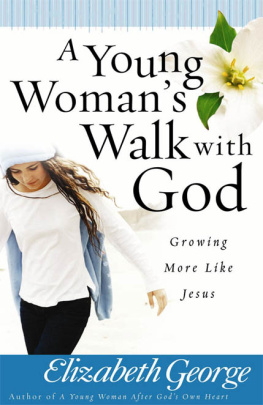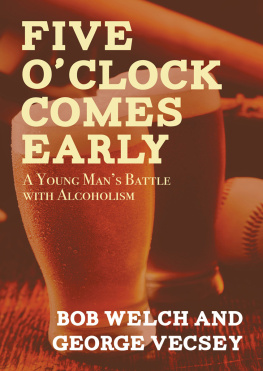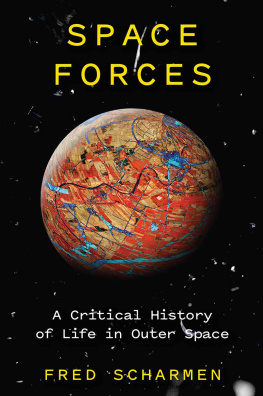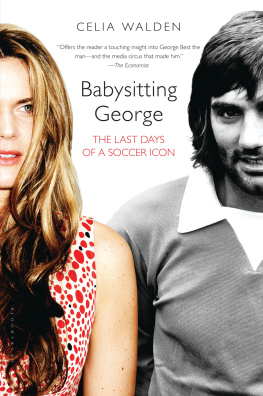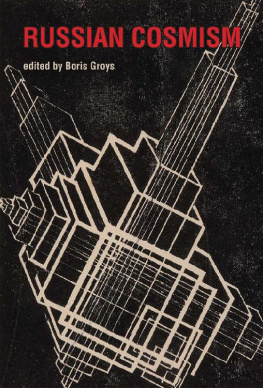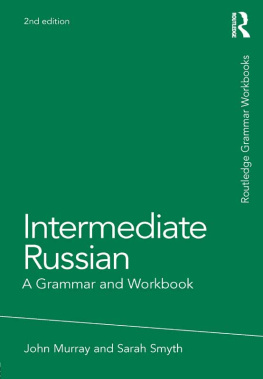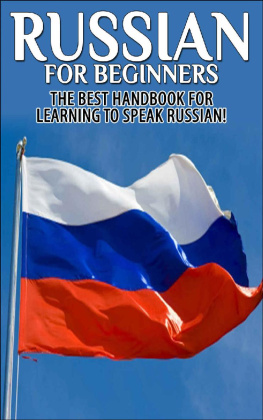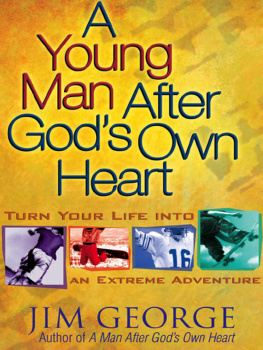George M. Young - The Russian Cosmists
Here you can read online George M. Young - The Russian Cosmists full text of the book (entire story) in english for free. Download pdf and epub, get meaning, cover and reviews about this ebook. year: 2012, publisher: Oxford University Press, genre: Science. Description of the work, (preface) as well as reviews are available. Best literature library LitArk.com created for fans of good reading and offers a wide selection of genres:
Romance novel
Science fiction
Adventure
Detective
Science
History
Home and family
Prose
Art
Politics
Computer
Non-fiction
Religion
Business
Children
Humor
Choose a favorite category and find really read worthwhile books. Enjoy immersion in the world of imagination, feel the emotions of the characters or learn something new for yourself, make an fascinating discovery.
- Book:The Russian Cosmists
- Author:
- Publisher:Oxford University Press
- Genre:
- Year:2012
- Rating:3 / 5
- Favourites:Add to favourites
- Your mark:
- 60
- 1
- 2
- 3
- 4
- 5
The Russian Cosmists: summary, description and annotation
We offer to read an annotation, description, summary or preface (depends on what the author of the book "The Russian Cosmists" wrote himself). If you haven't found the necessary information about the book — write in the comments, we will try to find it.
The Russian Cosmists — read online for free the complete book (whole text) full work
Below is the text of the book, divided by pages. System saving the place of the last page read, allows you to conveniently read the book "The Russian Cosmists" online for free, without having to search again every time where you left off. Put a bookmark, and you can go to the page where you finished reading at any time.
Font size:
Interval:
Bookmark:
The Russian Cosmists
THE RUSSIAN COSMISTSThe Esoteric Futurism of Nikolai
Fedorov and His Followers

GEORGE M. YOUNG


Oxford University Press, Inc., publishes works that further
Oxford Universitys objective of excellence
in research, scholarship, and education.
Oxford New York
Auckland Cape Town Dar es Salaam Hong Kong Karachi
Kuala Lumpur Madrid Melbourne Mexico City Nairobi
New Delhi Shanghai Taipei Toronto
With offices in
Argentina Austria Brazil Chile Czech Republic France Greece
Guatemala Hungary Italy Japan Poland Portugal Singapore
South Korea Switzerland Thailand Turkey Ukraine Vietnam
Copyright 2012 by Oxford University Press, Inc.
Published by Oxford University Press, Inc.
198 Madison Avenue, New York, NY 10016
www.oup.com
Oxford is a registered trademark of Oxford University Press
All rights reserved. No part of this publication may be reproduced,
stored in a retrieval system, or transmitted, in any form or by any means,
electronic, mechanical, photocopying, recording, or otherwise,
without the prior permission of Oxford University Press.
Library of Congress Cataloging-in-Publication Data
Young, George M.
The Russian cosmists : the esoteric futurism of Nikolai Fedorov and his followers / George M. Young.
p. cm.
Includes bibliographical references and index.
ISBN 978-0-19-989294-5 (hardcover : alkaline paper)ISBN 978-0-19-989295-2 (ebook)
1. Philosophy, RussianHistory. 2. CosmologyPhilosophy. 3. Fedorov, Nikolai Fedorovich, 18281903.
4. PhilosophersRussia. 5. PhilosophersSoviet Union. I. Title.
B4235.C6Y68 2012
197dc23 2011041924
1 3 5 7 9 8 6 4 2
Printed in the United States of America
on acid-free paper
THIS STUDY BEGAN some years ago, in 1964, in a Yale graduate school seminar on Dostoevsky taught by Robert Louis Jackson. As I recall, ten or twelve of us were in the seminar, and early in the term Professor Jackson gave us a list of some ten or twelve topics for weekly reports. We chose by our order in the class roll, and I watched in dismay as one after another all the best Dostoevsky-and topics were chosen: Bakhtin, Vyacheslav Ivanov, the Elder Amvrosy, Dickens, Pushkin, Images of Childhood, the Ideal of Beauty. When the choice reached me, as last in the alphabet, two topics were left, neither of which I had ever heard of. So, having no idea what I was in for, I chose Nikolai Fedorov. The first information I found about him came from a footnote to Dolinins edition of Dostoevskys letters, and reading that footnote again and again I began to think to myself: this is a big idea! When the week for my report came, I gave it and have been thinking and writing about Fedorov and topics related to him since.
This study presents several corrections and a great many updates, and is an adventurous outgrowth of my 1979 book, Nikolai Fedorov: An Introduction. When I wrote that work, I was not a proponent of Fedorovs teachings but admired the strength and boldness of his philosophical imagination. Over the years, my attitude to Fedorovs ideas has not changed significantly, and in writing the present book I find that I view the thoughts of most of the other Cosmists much in the same way I view Fedorovs: hugely fascinating, inspiring, stimulating, but not ideas I would insist that friends and readers drop everything to live by. Mental health warning: fascinating as they are, at least to me, all the Cosmists were and are highly controversialsome would say even kookythinkers, recommended for mature audiences only.
In mechanical matters, the translations are mine unless otherwise noted. In the notes and bibliography I have used a standard system of transliteration, but in the body of the text I have used familiar English spellings rather than consistent transliterations for certain Russian words and names. In quoting other commentary in English, I have used that authors spelling of Russian names instead of changing them to be consistent with my spellings.
Over the years, many people, some no longer alive, have supported and helped my writing in general and my work on Fedorov and the Cosmists in particular. I would like to express my gratitude to all of them, but will mention only a few teachers, colleagues, friends, and editors: Gale Carrithers, William Blackburn, Reynolds Price, Fred Chappell, Wallace Kaufman, Robert Louis Jackson, Victor Erlich, Richard Gustafson, Rene Wellek, Michael Holquist, John Dunlop, Gordon Livermore, George Zimmar, George L. Kline, William F. Buckley, Jeffrey Hart, Peter Jarotski, Walter Arndt, Robert Siegel, James Tatum, Charles Stinson, Anouar Majid, Matthew Anderson, Susan McHugh, Lee Irwin, Maria Carlson, Kristi Groberg, Bernice Rosenthal, Betty Bland, Richard Smoley, John Algeo, David London, Svetlana Semenova, Anastasia Gacheva, Valery Borisov, Julie Scott, Steven Armstrong, Cynthia Read, and Ben Sadock. I am grateful to the University of New England librarians for help in research, and to the Center for Global Humanities of the University of New England for generous financial assistance to complete research and writing. Most important of all to me over these many years has been the love and support of my wife Patricia, son Roy, daughter Susannah, and son-in-law Patrick. Always in my mind, I wish to dedicate this book to the memory of my parents, George and Mary Ella Young, and my sister Patricia Pryor.
The Russian Cosmists
The Spiritual Geography of
Russian Cosmism
There is that in the Russian soul which corresponds to the immensity, the vagueness, the infinitude of the Russian land, spiritual geography corresponds with physical. Two contradictory principles lay at the foundation of the structure of the Russian soul, the one a natural, Dionysian, elemental paganism and the other ascetic monastic Orthodoxy. The mutually contradictory properties of the Russian people may be set out thus: despotism, the hypertrophy of the State, and on the other hand anarchism and licence: cruelty, a disposition to violence, and again kindliness, humanity and gentleness: a belief in rites and ceremonies, but also a quest for truth: individualism, a heightened consciousness of personality, together with an impersonal collectivism: nationalism, laudation of self, and universalism, the ideal of the universal man: an eschatological messianic spirit of religion, and a devotion which finds its expression in externals: a search for God, and a militant godlessness: humility and arrogance: slavery and revolt. But never has Russia been bourgeois.
NIKOLAI BERDYAEV, The Russian Idea
SINCE THE COLLAPSE of the Soviet Union in 1991, Russian intellectuals have directed much of what Berdyaev describes as their traditional prodigious, contradictory, but creative mental energy toward bringing back into focusand finding new signs of vitality inwriters, artists, thinkers, and intellectual currents suppressed, degraded, or merely ignored during the Soviet period. One of the most vigorous and productive of these rediscovered intellectual tendencies is Russian Cosmism, a highly controversial and oxymoronic blend of activist speculation, futuristic traditionalism, religious science, exoteric esotericism, utopian pragmatism, idealistic materialismhigher magic partnered to higher mathematics.
Next pageFont size:
Interval:
Bookmark:
Similar books «The Russian Cosmists»
Look at similar books to The Russian Cosmists. We have selected literature similar in name and meaning in the hope of providing readers with more options to find new, interesting, not yet read works.
Discussion, reviews of the book The Russian Cosmists and just readers' own opinions. Leave your comments, write what you think about the work, its meaning or the main characters. Specify what exactly you liked and what you didn't like, and why you think so.

